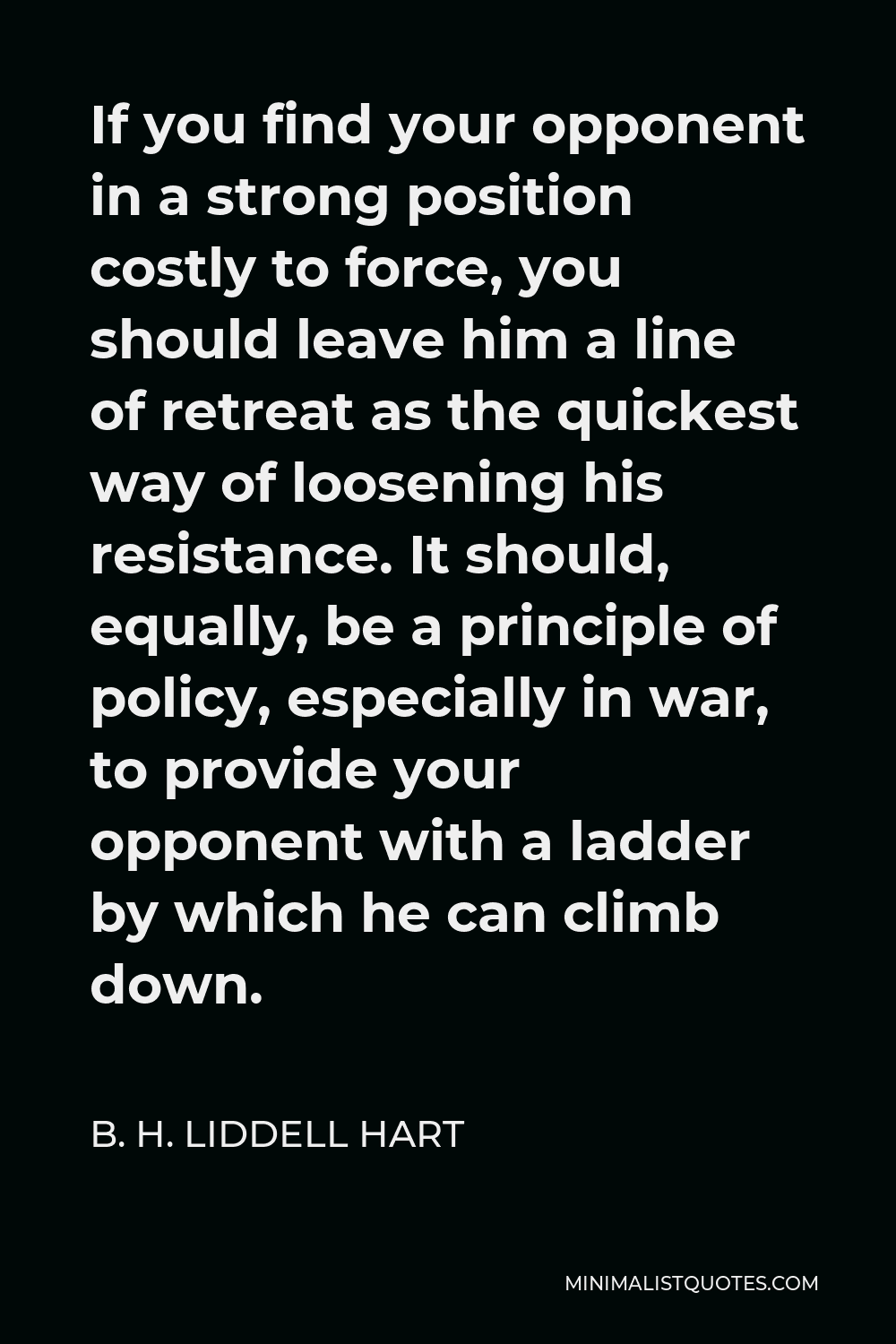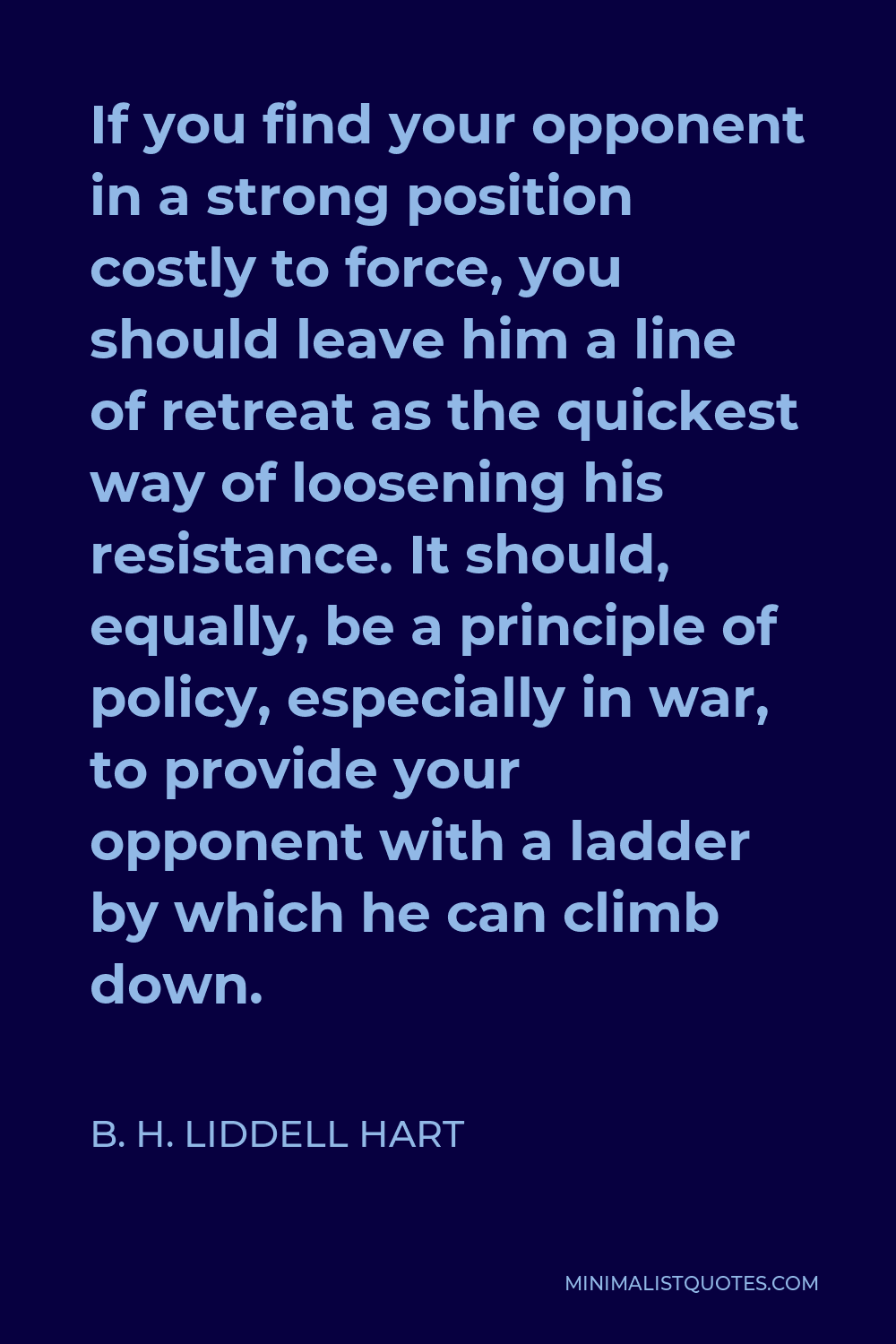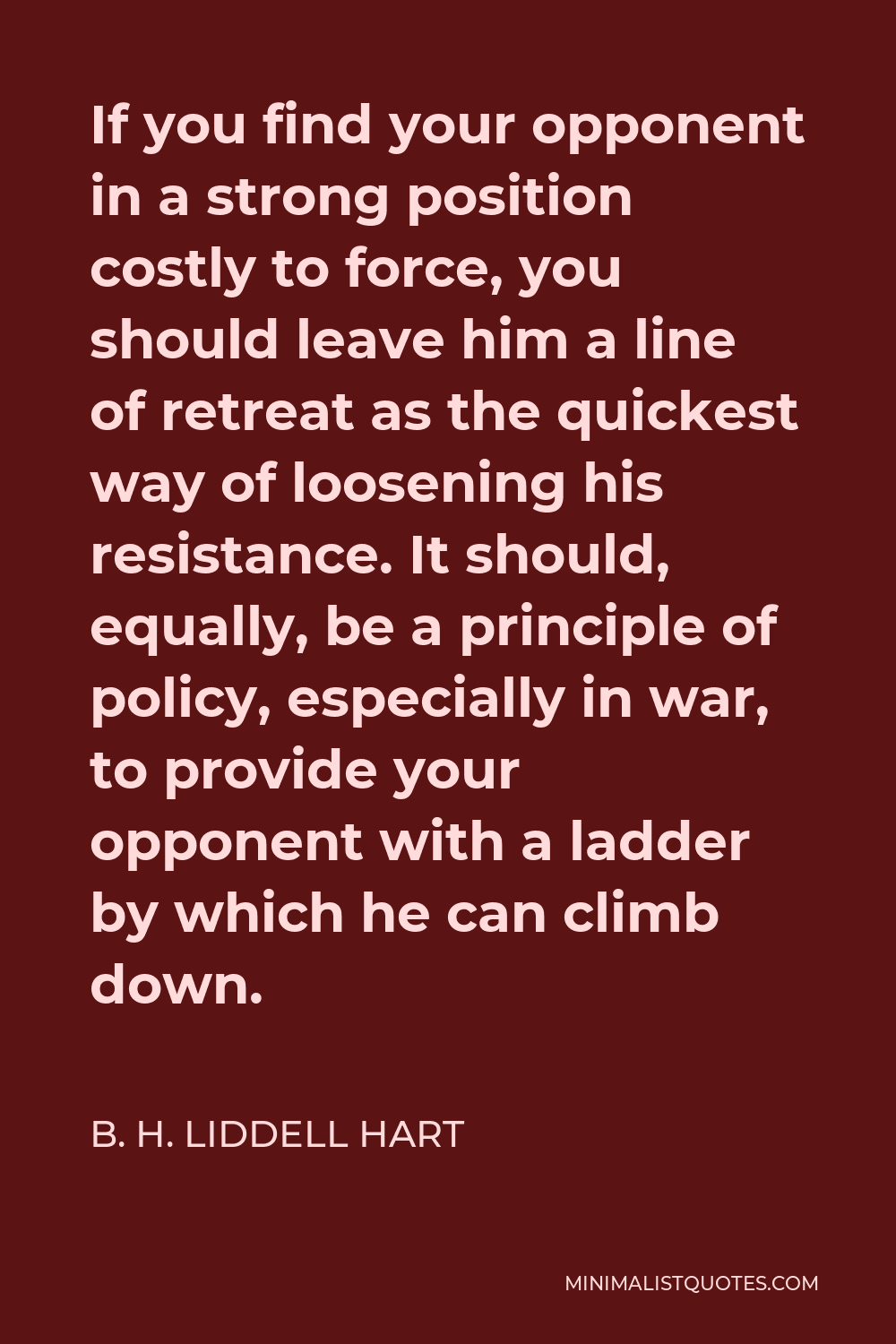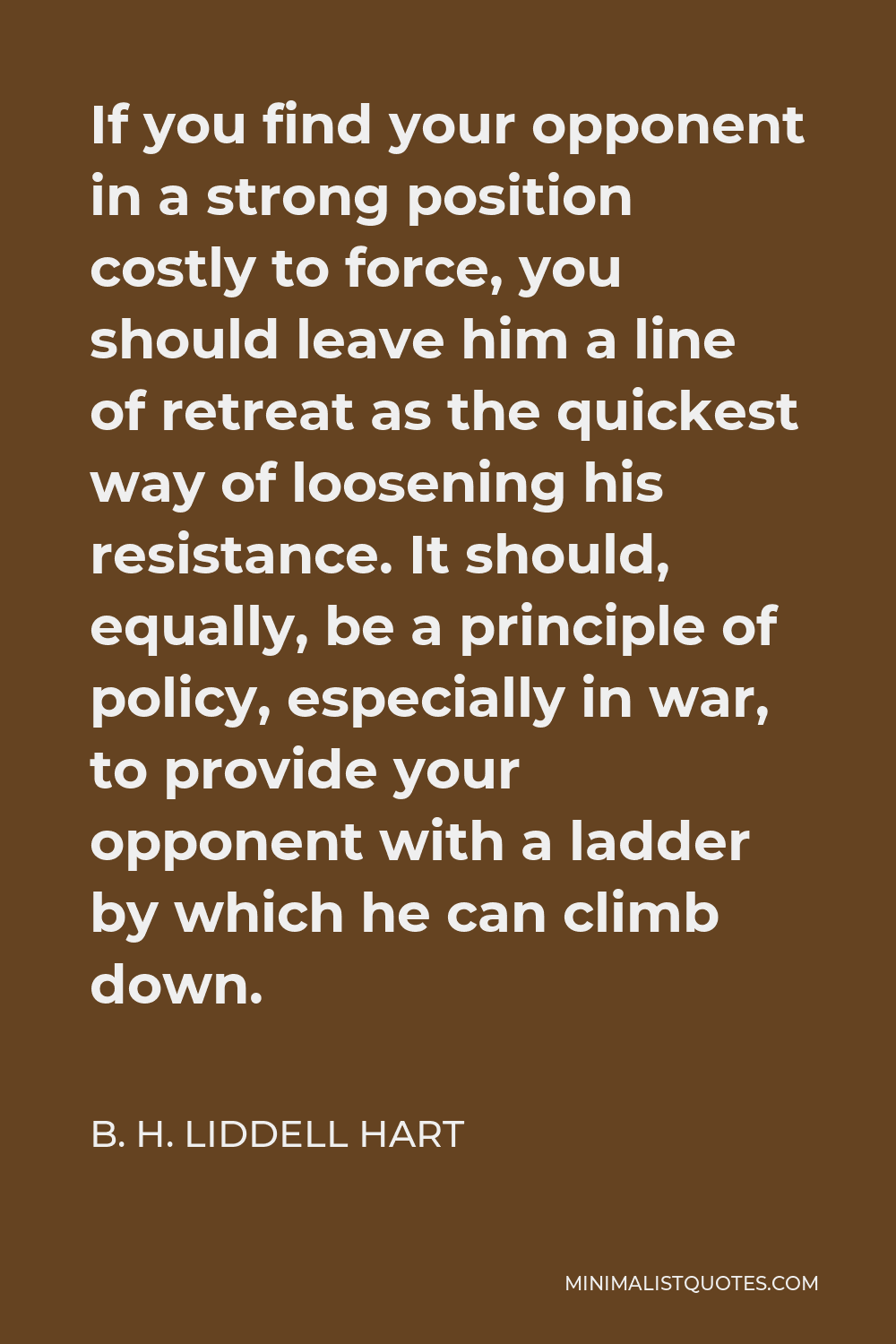It is thus more potent, as well as more economical, to disarm the enemy than to attempt his destruction by hard fighting … A strategist should think in terms of paralysing, not of killing.
B. H. LIDDELL HARTIf you find your opponent in a strong position costly to force, you should leave him a line of retreat as the quickest way of loosening his resistance. It should, equally, be a principle of policy, especially in war, to provide your opponent with a ladder by which he can climb down.
More B. H. Liddell Hart Quotes
-





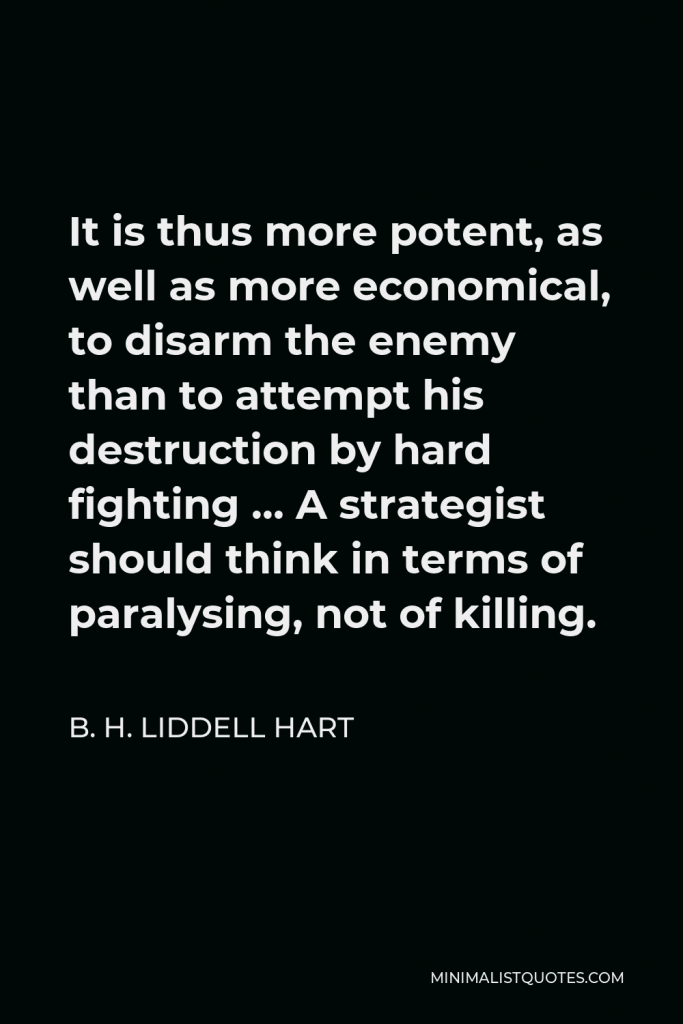

-





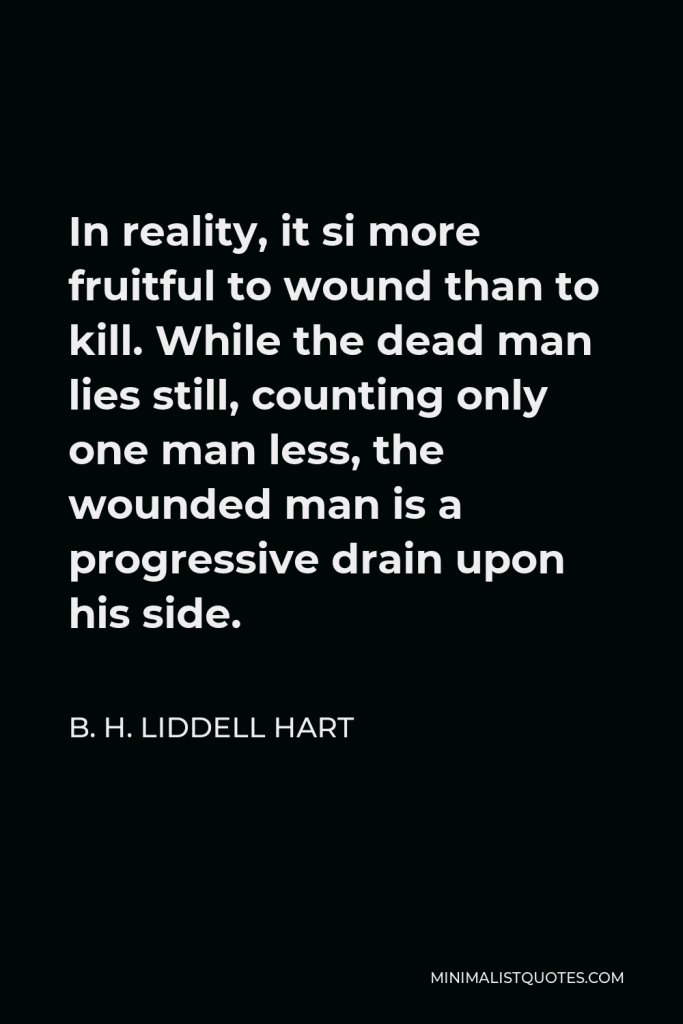

In reality, it si more fruitful to wound than to kill. While the dead man lies still, counting only one man less, the wounded man is a progressive drain upon his side.
B. H. LIDDELL HART -





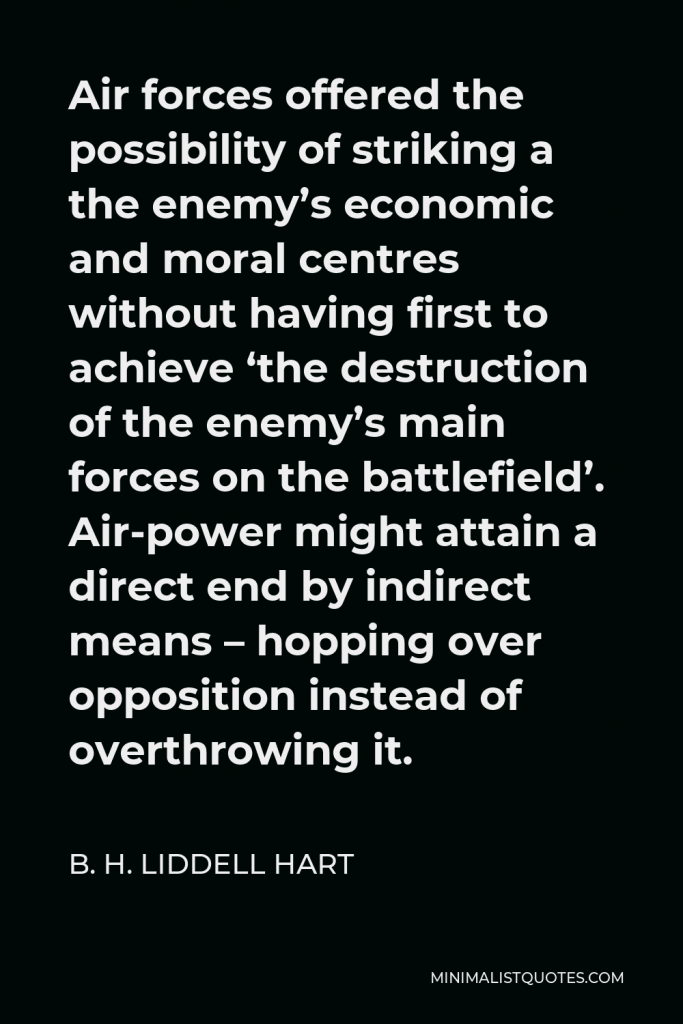

Air forces offered the possibility of striking a the enemy’s economic and moral centres without having first to achieve ‘the destruction of the enemy’s main forces on the battlefield’. Air-power might attain a direct end by indirect means – hopping over opposition instead of overthrowing it.
B. H. LIDDELL HART -





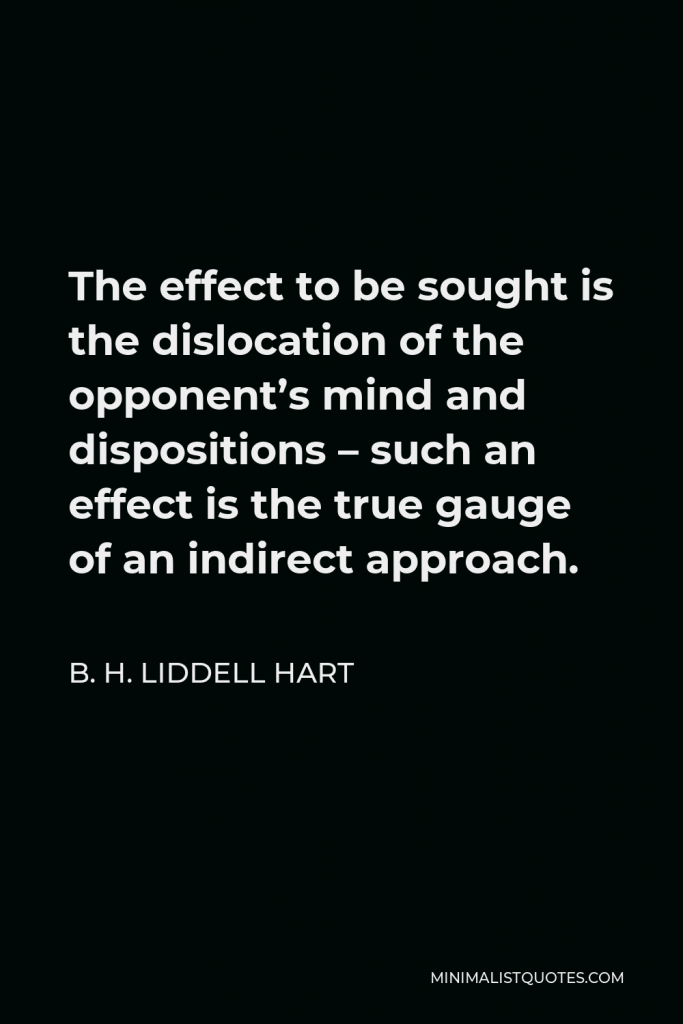

The effect to be sought is the dislocation of the opponent’s mind and dispositions – such an effect is the true gauge of an indirect approach.
B. H. LIDDELL HART -





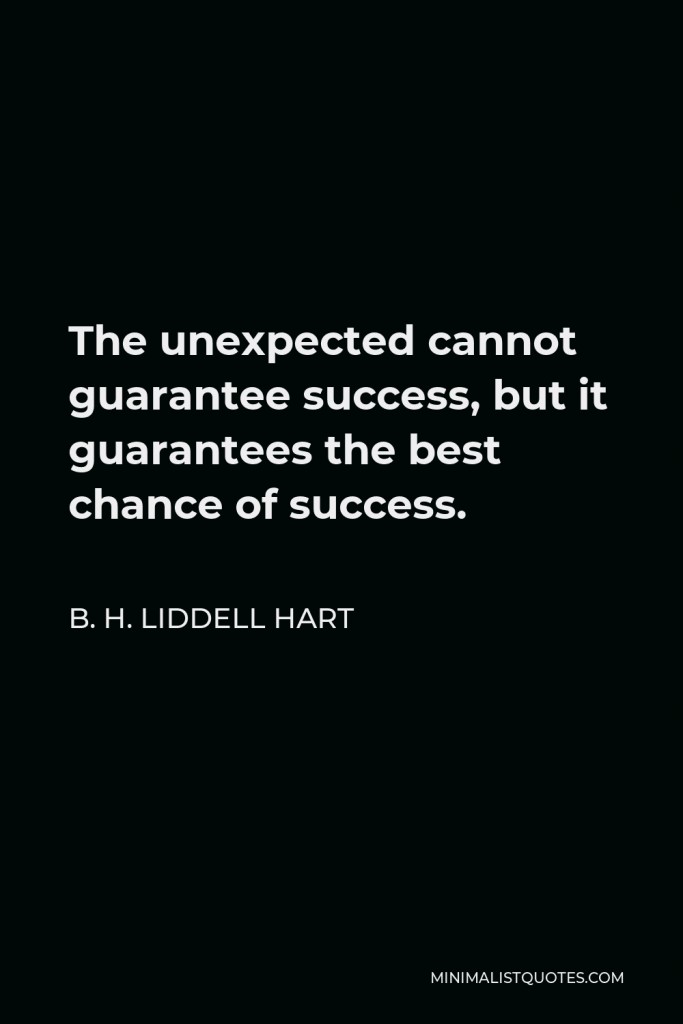

The unexpected cannot guarantee success, but it guarantees the best chance of success.
B. H. LIDDELL HART -





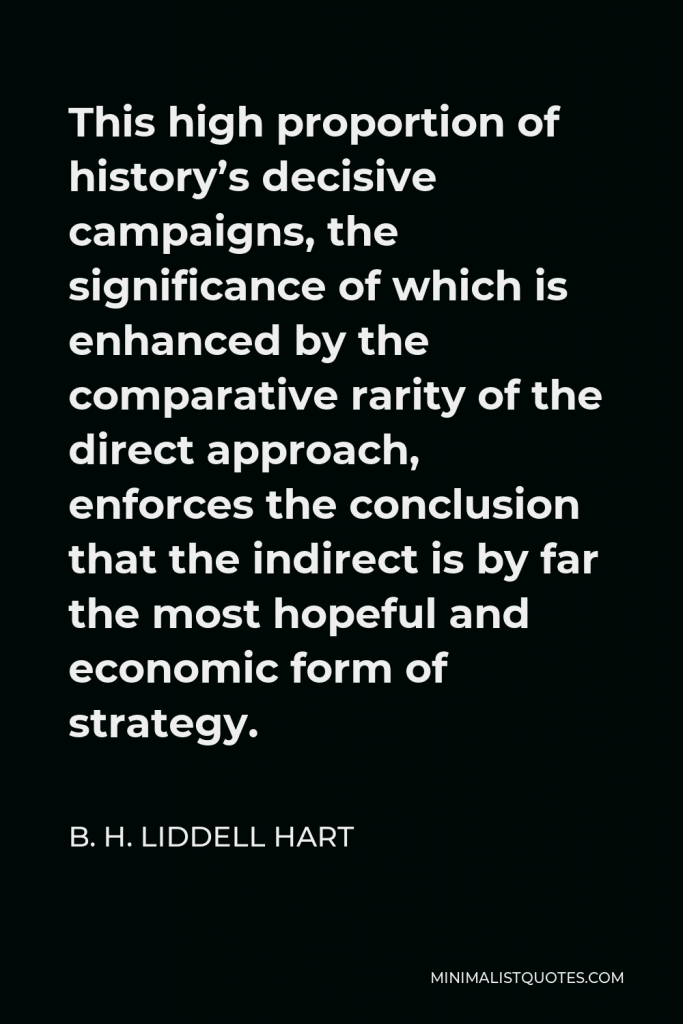

This high proportion of history’s decisive campaigns, the significance of which is enhanced by the comparative rarity of the direct approach, enforces the conclusion that the indirect is by far the most hopeful and economic form of strategy.
B. H. LIDDELL HART -





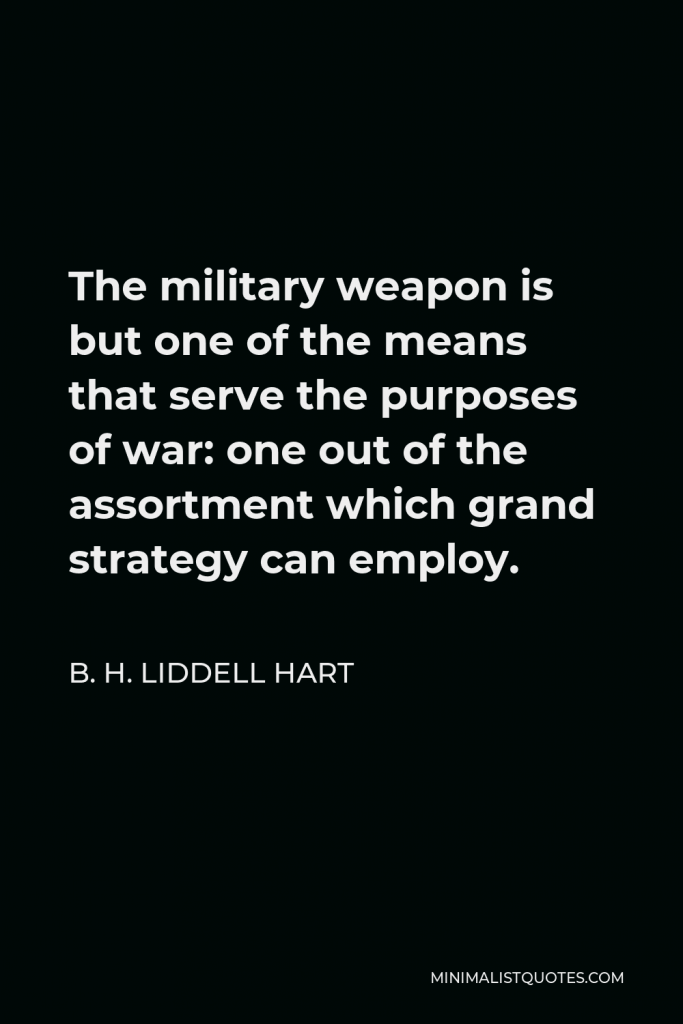

The military weapon is but one of the means that serve the purposes of war: one out of the assortment which grand strategy can employ.
B. H. LIDDELL HART -





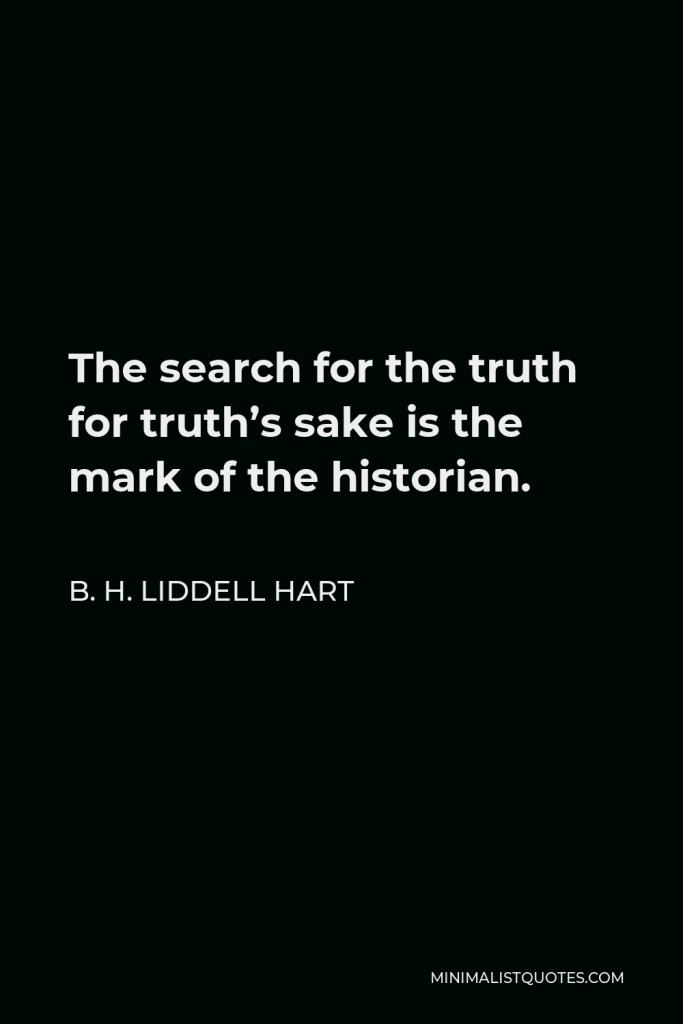

The search for the truth for truth’s sake is the mark of the historian.
B. H. LIDDELL HART -





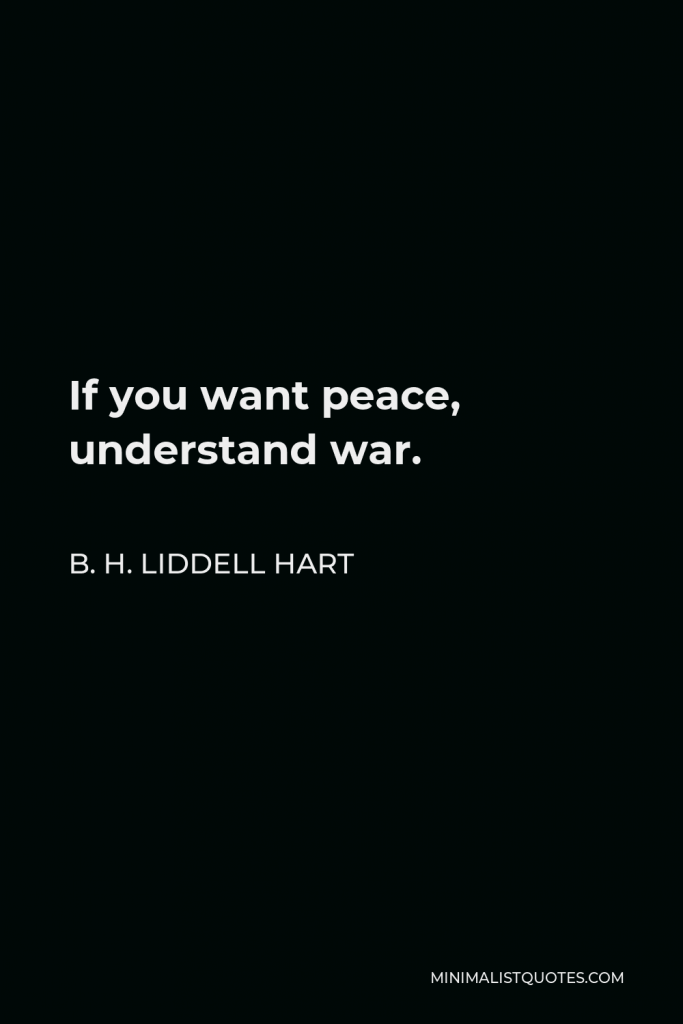

If you want peace, understand war.
B. H. LIDDELL HART -





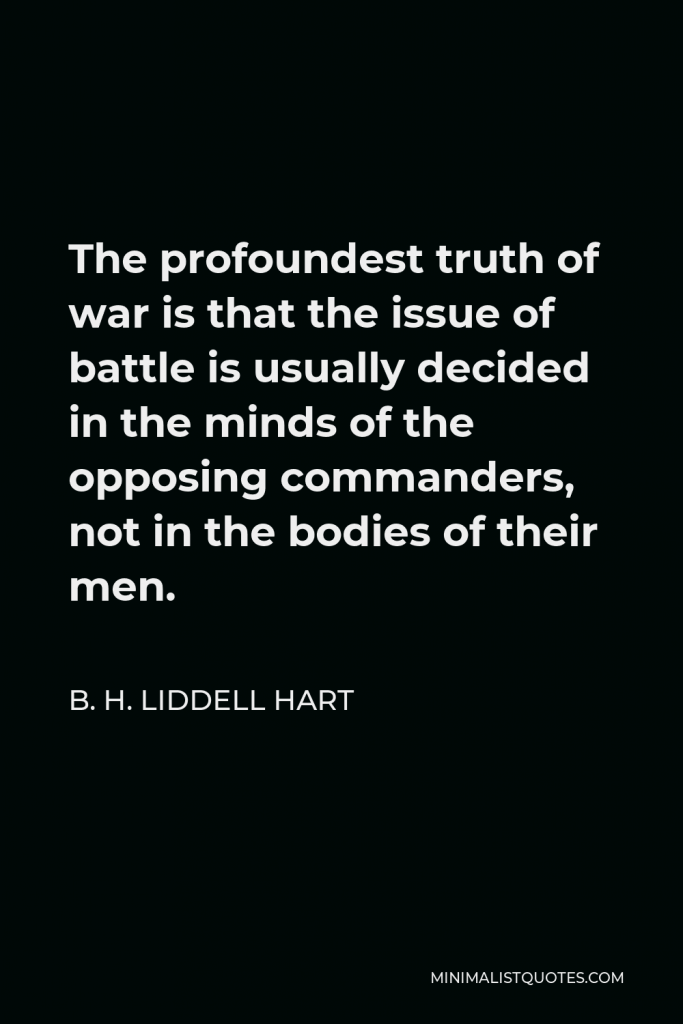

The profoundest truth of war is that the issue of battle is usually decided in the minds of the opposing commanders, not in the bodies of their men.
B. H. LIDDELL HART -





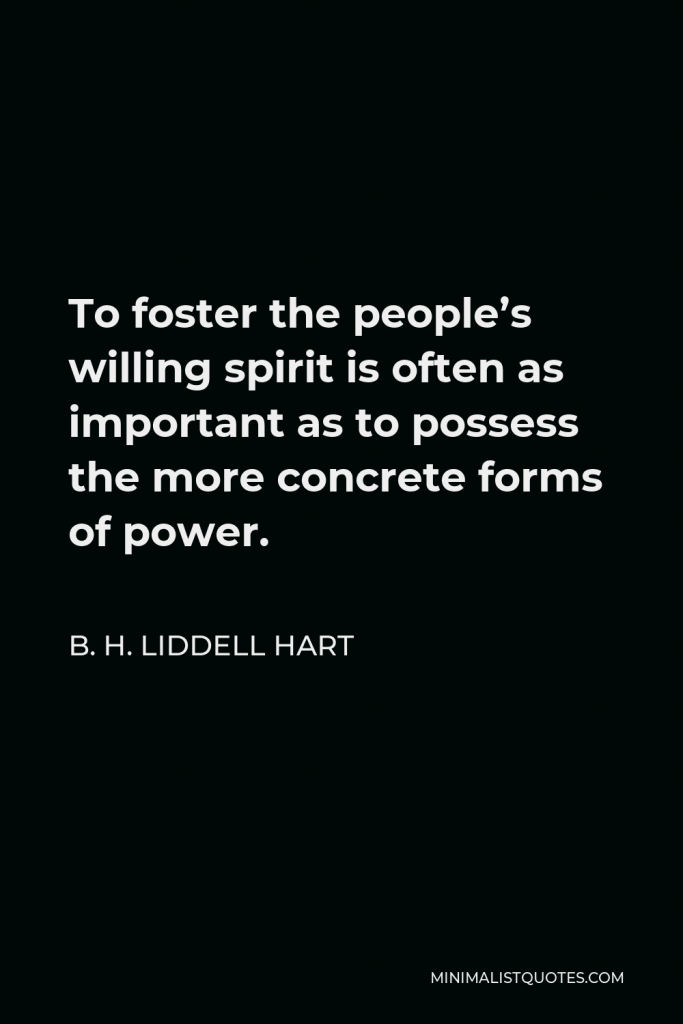

To foster the people’s willing spirit is often as important as to possess the more concrete forms of power.
B. H. LIDDELL HART -





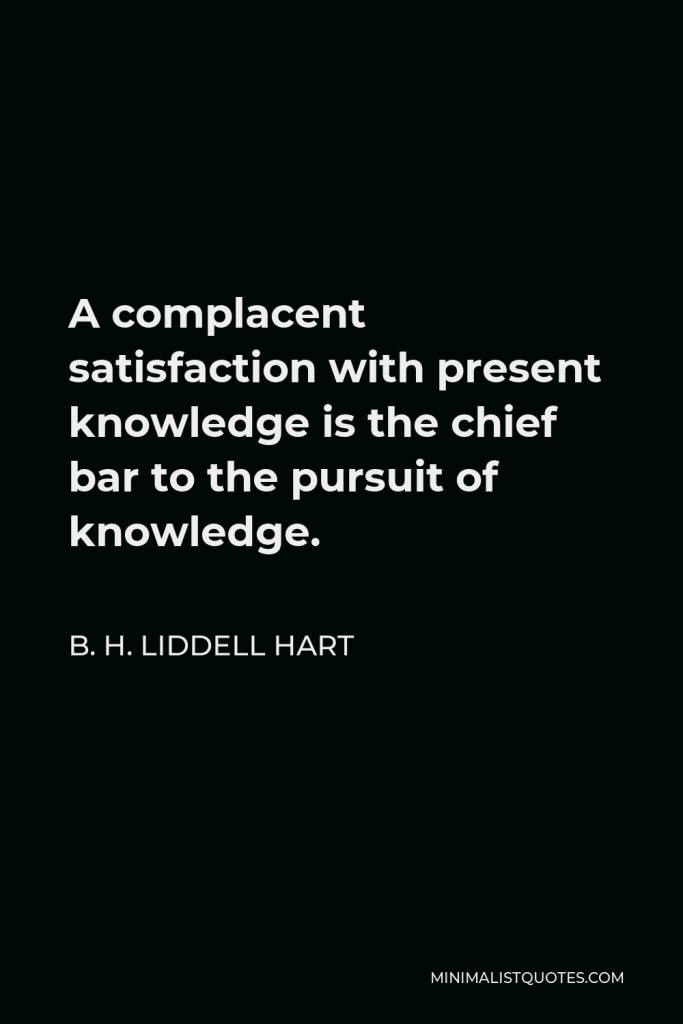

A complacent satisfaction with present knowledge is the chief bar to the pursuit of knowledge.
B. H. LIDDELL HART -





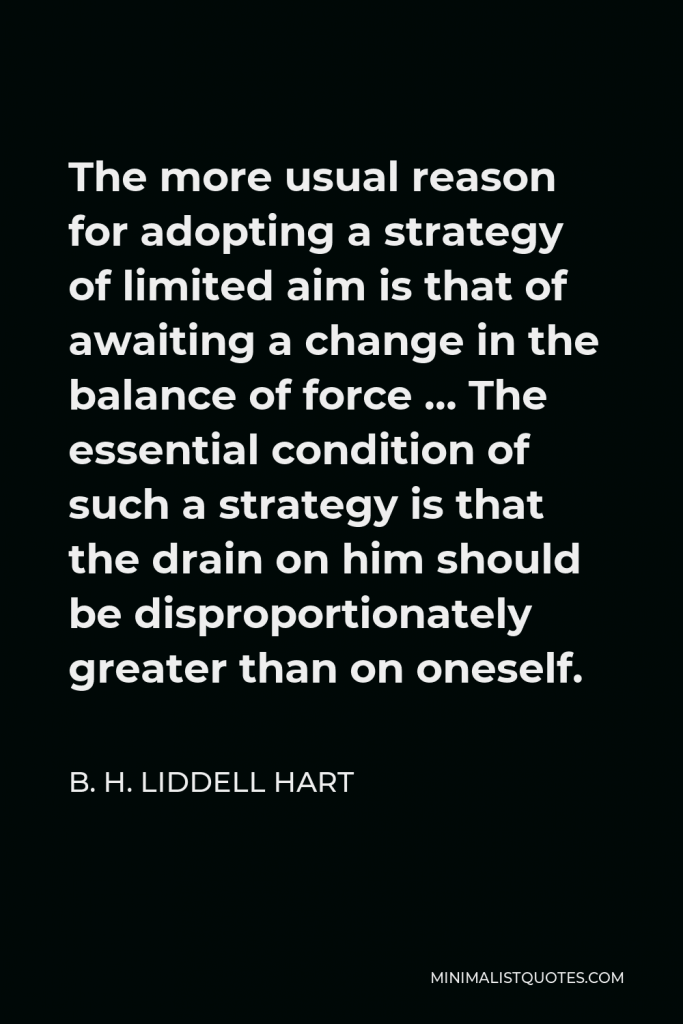

The more usual reason for adopting a strategy of limited aim is that of awaiting a change in the balance of force … The essential condition of such a strategy is that the drain on him should be disproportionately greater than on oneself.
B. H. LIDDELL HART -





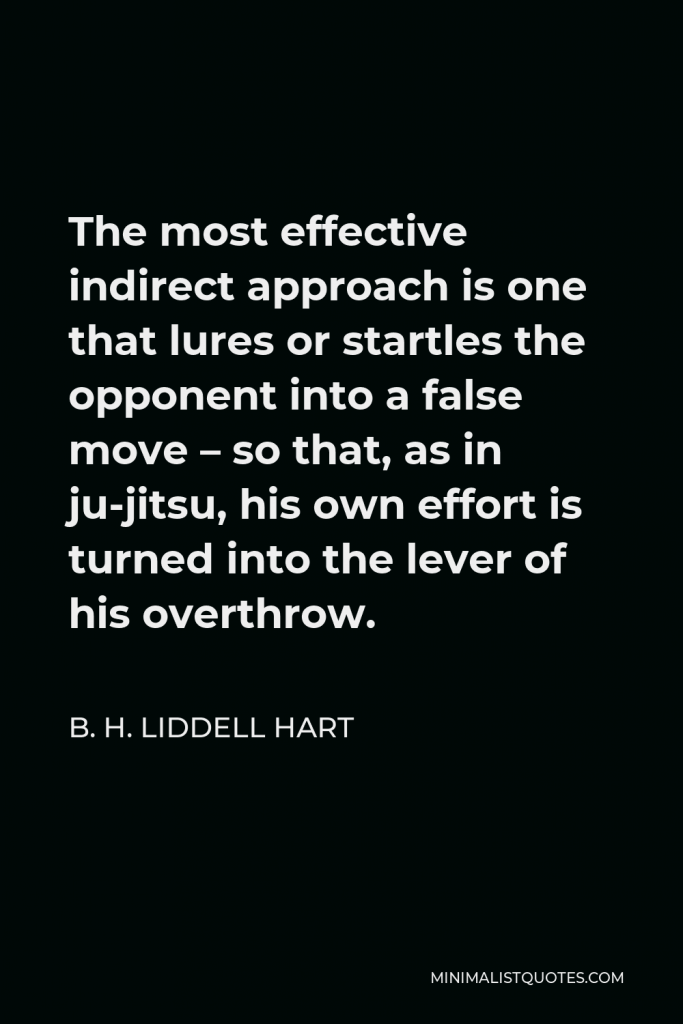

The most effective indirect approach is one that lures or startles the opponent into a false move – so that, as in ju-jitsu, his own effort is turned into the lever of his overthrow.
B. H. LIDDELL HART -





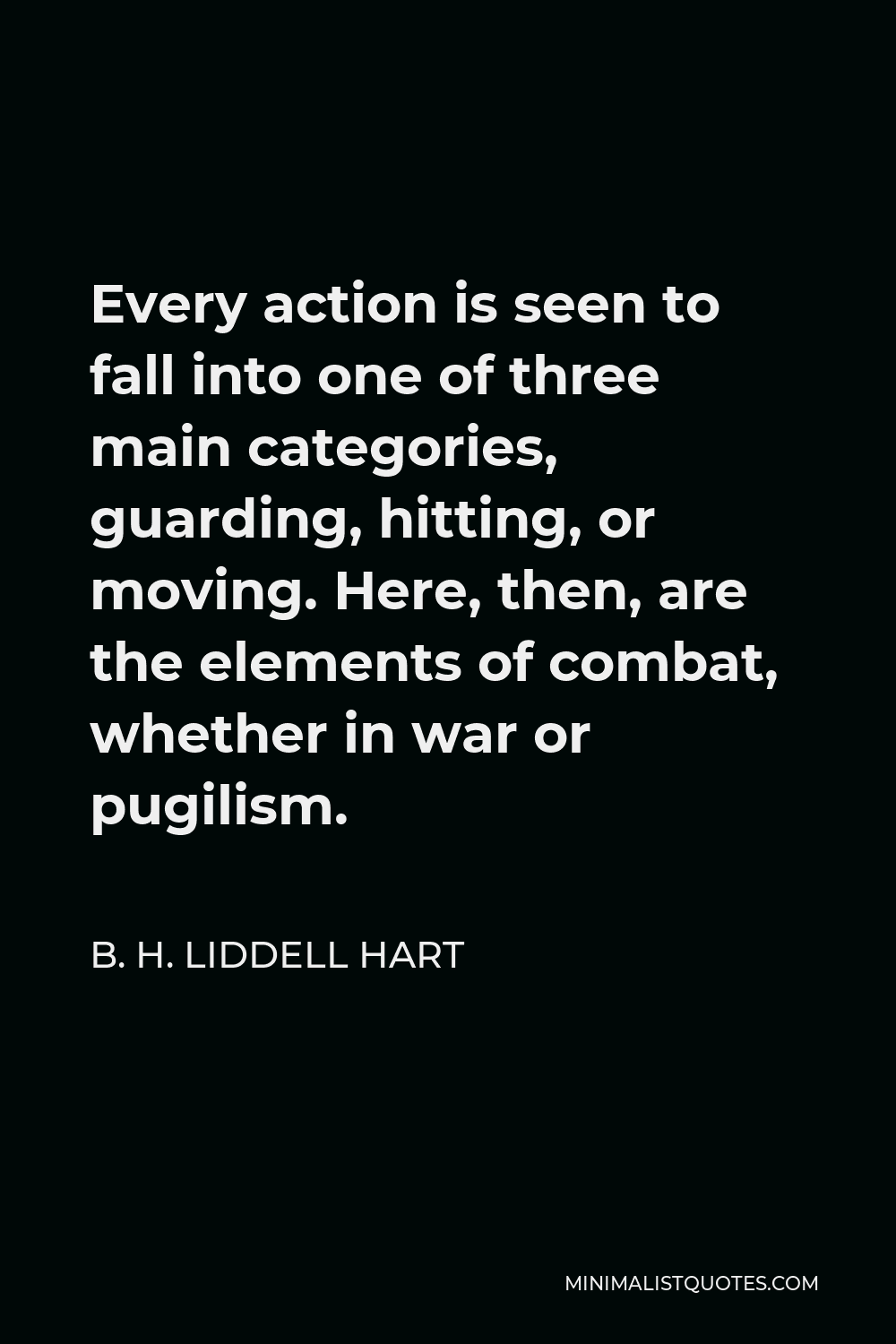
Every action is seen to fall into one of three main categories, guarding, hitting, or moving. Here, then, are the elements of combat, whether in war or pugilism.
B. H. LIDDELL HART -





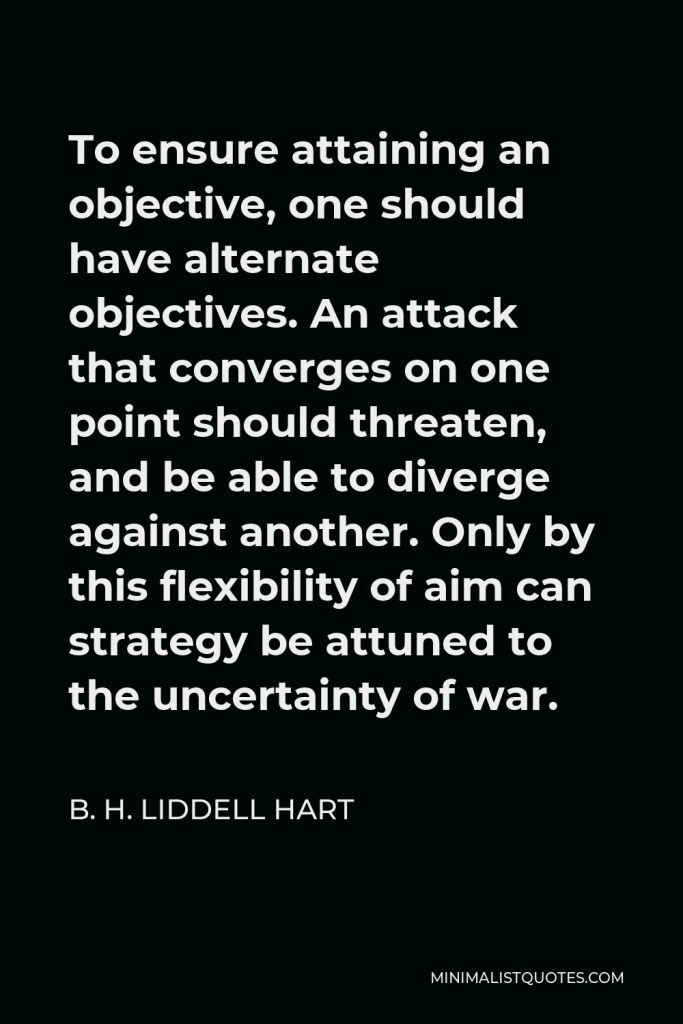

To ensure attaining an objective, one should have alternate objectives. An attack that converges on one point should threaten, and be able to diverge against another. Only by this flexibility of aim can strategy be attuned to the uncertainty of war.
B. H. LIDDELL HART
